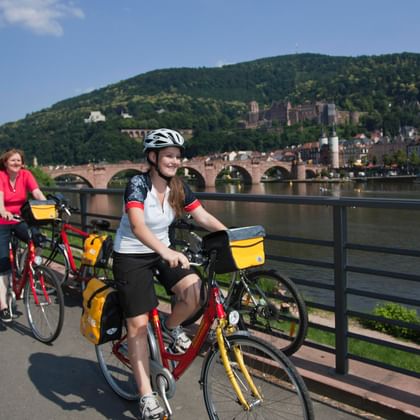Introduction to the Rhine Cycle Route from Switzerland to the Netherlands
With a total length of around 1,230 km, the Rhine is one of the longest rivers in Europe. The source of the Rhine is in the Swiss Alps. From Lake Toma in the Oberalp Pass, at 2,345 meters above sea level, the 'Rhein' flows eastwards as a small stream. The town of Tschamut is the first inhabited village to see the Rhine pass by.
At Reichenau, the 'Rear Rhine' joins the river. After the town of Chur, the Rhine curves in a wide bend to Lake Constance and then flows westwards to Basel. Here the river begins a long journey through the border area between France and Germany before crossing Germany and finally crossing the border with the Netherlands on its way to the North Sea.
The Rhine Cycle Route is suitable for cyclists of all levels with exceptionally good cycle path infrastructure and passes through some of the most fascinating cities in Europe such as Basel, Strasbourg and Cologne.

Perfectly organised cycling holidays along the Rhine Cycle Route
The mighty Rhine captivates with its timeless charm, offering a perfect blend of scenic, cultural, and culinary highlights. Cycling along the river, you'll pass fascinating cities, terraced vineyards, and stunning castles, making it an unforgettable journey. Spanning nearly 1,320 km through Switzerland, Germany, Austria, France, and the Netherlands, this route allows you to explore the romantic landscapes and experience the warm hospitality of local communities.

